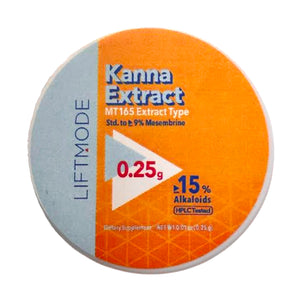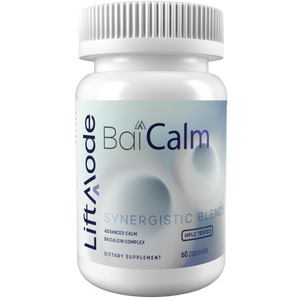What we’re all about
This blog aims to share helpful information relating to body and mind dietary supplements, healthy lifestyles and the connection between the two. It delves a little into the new world of Nootropics, the science of supplements and physical health. We explore issues relating to unsound supplement advertising, labeling and stacking as well as the problems arising from pseudo-science supplements and health products that have not had their properties properly tested. Our focus is primarily on the positive aspects of good, pure and tested supplements and how healthy lifestyle choices can increase their potential for beneficial effects We aim to produce an insightful new blog post once a week, allowing users a chance to take in the information provided. We also aim to create a forum for discussion, as well as a means of communicating information that you’d like to see in the upcoming post.Why is it better to use pure products?
We’ve all heard of “pure” health supplements, or seen products that claim to be “70% pure” or “80% pure”, but what do these figures mean, exactly? What does it mean for a supplement to be pure and why should we prefer pure supplements? The definition of the word ‘purity’ is “freedom from adulteration or contamination”[1]. Health and dietary supplement purity is often expressed as a percentage, i.e. 85% purity. This means that 85 out of 100 parts are the active chemical, and 15 out of 100 are inactive or are a contaminant. Often we see these numbers and think “Oh wow! 85% pure, that’s nearly fully pure - must be good!” The problem is the other 15% or 5% or even 2%. These additives, impurities or contaminants can have detrimental effects on the efficiency of the supplement and its bioavailability, as well as possibly on your health. There are two types of impurities: contaminants (mostly accidental) and the addition of preservatives and excipients (inactive substances). Some chemicals, for example Vitamin D, require the use of excipients in developing a useable product. Pure Vitamin D is around 40 million international units (IU) per gram, while the recommended daily allowance is only around 600-800 IU per day[2]. Health-wise, the lower the level of impurities the better. Some additives to dietary supplements can have negative health impacts. We list the additives that are considered safe according to the FDA below:- Magnesium stearate
- Silica
- Microcrystalline cellulose
- Gellan gum
- Gelatin
- Hypromellose
- Lactose
- Maltodextrin
How does high purity save you money?
High purity products do not only avoid potential health hazards from additives, but they also save you money. How? Let’s say you purchased a 25g tub of a 4:1 extract (75% purity) for $35 (A). Great! Imagine you saw a 25g tub of 98% pure supplement for around $40 (B). Seems like a fairly large price difference for the same amount of substance, right? Now let’s say that the recommended daily dose for this supplement is around 250 mg of pure extract. If you’re using the 75% pure supplement you’ll need to take around 315 mg daily. However, the 98% pure supplement will only require 255 mg daily. This may seem like a small difference in the beginning but in the end it all adds up. You’d have use up the 75% pure tub in 79 days, but the 98% pure tub would have lasted nearly 100 days! That comes down to 3 weeks of extra doses for an extra $5! This is just a hypothetical example to prove the point. If you look around you’ll even find some supplement companies that sell high purity products (95%-99.5% pure) for the same price or less than the price of lower purity extracts[3]. Liftmode.com uses 99.5% Phenibut
Why is a 99.5% product better than a 70% product?
We’ve looked at two main aspects of supplement purity and the advantages of high purity products. High purity products are usually better for your health because of the lack of additives. They also save you money by giving you more supplements for your money.How do over the counter supplements compare with supplements from professional companies?
Good professional supplement companies will have a seal of approval. All supplements that sold in America are required to meet the FDA’s “Good Manufacturing Practices” guidelines and must be FDA approved. However, some professional supplements will carry a seal of approval from a separate, independent certification program. These independent certifiers aim to keep the supplement industry in check by performing separate tests for purity, contamination, accuracy of labeling and ability to disintegrate. Good independent seals of approval to look out for come from; ConsumerLab.com, the US Pharmacopeia Convention (USP) and NSF International.[4] It is important to realize though, that these seals of approval are voluntary and random. Sometimes good brands may not have an independent seal of approval yet because their product simply hasn’t been on the market long enough to have been tested yet. Some, but not all, professional companies will provide a “certificate of analysis (CoA)” of their product so you know exactly what is in it. Going with companies like LiftMode, for example, is recommended because you’ll know that the product is free from contaminants and impurities and you’ll see the exact composition of the supplement, including the fillers. One of the most important things to look out for when purchasing a supplement is whether it contains a ‘proprietary blend’. A proprietary blend lists the ingredients but not their individual amounts. This means you won’t know the exact amount of each ingredient - you don’t know what you’re getting! FDA regulations require that the proprietary blend list ingredients in order of weight, so the first ingredient you’ll see will be the most abundant. However, the amounts of each ingredient are not required to be listed by law. Proprietary blends are undesirable for a number of reasons. Firstly, evaluating a product’s efficiency requires knowledge of the amounts of each ingredient. This is not possible (or very difficult) to achieve with a proprietary blend. Secondly, every active chemical has an effective dose (the minimum dose required for effects to work - mostly depending on a person’s weight). If you are unable to tell the amount of each ingredient, it is impossible to tell whether you are receiving an effective dose from your supplement. You may be taking a supplement containing a whole host of active chemicals but all in such low quantities so as to produce no effects![5]Our answer
We reckon it’s important to use high quality, high purity supplements from professional supplement producers. These will contain no potentially harmful additives or excipients - any and all additives will be listed on the supplement and are FDA approved as safe. Your high quality, professionally made, high purity product should ideally have a seal of approval from an approved certifier, as well as a Certificate of Analysis providing information about the product and all the ingredients. The product should not contain a proprietary blend. In the end, sticking to these general guidelines when buying a supplement for the first time will save you money, produce more effective results, and prevent possible health risks.Phenylethylamine supplement facts
Resources
- [1] “Purity” - dictionary.com 25-08-2015
- [2] Blog post: “How is a professional supplement brand different to an over-the-counter brand” - erewhonmarket.com (24-08-2015)
- [3] LiftMode - liftmode.com - 24-08-2015
- [4] “Supplement Seals of Approval” - Berkeley University of California, Wellness blog - http://www.berkeleywellness.com/supplements/other-supplements/article/supplement-seals-approval - 25-08-2015
- [5]Blog post - “What are Proprietary Blends and why you should avoid them” - Citadel Nutrition -http://www.citadelnutrition.com/_blog/Blog/post/How_to_Choose_Effective_Supplements_Proprietary_Blends/- 25-08-2015




